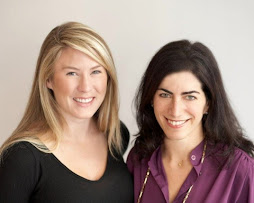
I was recently speaking with someone who was quite upset about a customer who didn’t seem to “get” or her business mission with same amount of fervor as my colleague would have liked. It seems that my colleague’s customer was supportive of the mission but was also very focused on the benefits of the service being offered. Pretty fair, I think.
Anyhow, it got me thinking….
Are customers who don’t “get” your mission really bad customers?
In the case of for-profit enterprises should mission really be a stumbling block?
Is it a good idea to base your outcomes on your mission alone? Or does that in fact, limit important customer diversity and short change the success of your services and products?
I realize there may be some differing opinions about this, but some guidelines I believe to be true (at least in the case of for-profit businesses - I realize that non-profits have a different relationship with mission):
1. Don’t expect your customers to do something because it is important to you. If you want to motivate specific action then either make it important to them too or align your needs with theirs.
2. You can’t mandate your mission. Sometimes people won’t get it or won’t care. We can’t expect customer to appreciate every bright shiny feature of what we offer, and that certainly includes our mission.
3. Similarly, you can’t dictate the customer experience. Some really great clients will only enjoy 15% of what you have to offer while others may have motivations or outcomes that are different from what you expect or anticipate. It is unfair to expect each client to be 100% in and an all-out evangelist.
4. Don’t expect your mission to drive the sale. Sure, sometimes customers might choose one service over another due to mission and some customers may be enthusiastic supporters of your mission, but don’t forget that ultimately you are selling a product or a service
Instead…
1. Use your mission as strategic guidepost. It should help you determine the best direction for you and the company and serve as a litmus test for various business decisions. When presented with a new choice, ask yourself “is this on mission?”
2. Recognize that your mission is for YOU. It may also appeal to your customers but it is not their primary focus and it is not really created or articulated for them.
3. Embrace customer diversity. Each client will have differing motivations, experiences, needs, and outcomes and that is GREAT! see what you can learn from them. Also, diversification often cultivates more security and stability.
4. Leverage your mission as a way to enhance your business and add meaning and purpose for YOU. Strengthen the significance of your business by giving it a strong mission that you believe in and are willing to ferociously pursue.
5. Remember that your mission doesn’t need to be charitable. There are thousands of innovative, admirable, and social responsible purposes who don’t have charitable missions. Your mission could be qualitative or quantitative, but it should define WHAT you want to achieve and be:
Motivating
Clearly articulated
Attainable (meaning it can be ticked off a list)
Long-term
I feel proud to work with so many mission focused businesses and I personally believe that they have tremendous strategic importance. But it is worth reminding yourself about their limits and purpose. They aren’t the sum of the business.
posted by Adelaide Lancaster











